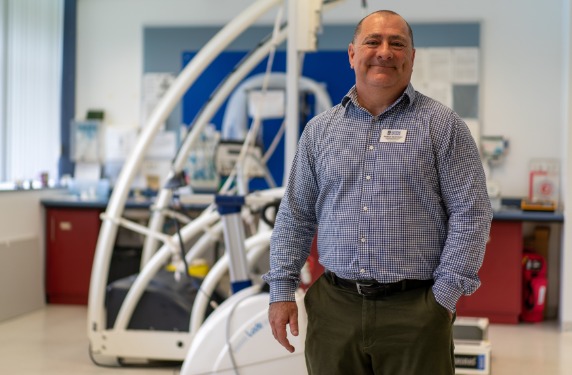The benefit and physical gain people experience from particular types of exercise routines such as endurance or resistance training is more dependent on environmental factors such as lifestyle and diet rather than genetics, according to a team of sport science researchers at The University of Western Australia.
Winthrop Professor Daniel Green, from UWA’s School of Human Sciences said the study examined how 42 pairs of identical and fraternal twins responded to two different exercise modes during a nine-month period.
“The twins were asked to undertake endurance-based training three months before completing a three-month rest and recovery period and then finishing with three months of resistance-based training,” Professor Green said.
Professor Green worked with PhD students Hannah Thomas and Channa Marsh from UWA’s School of Human Sciences to closely examine if each pair of twins were experiencing the same amount of physical strength and endurance gain as each other.
“If genetics influenced the benefits of exercise, identical twins would experience the same amount of physical improvement and fraternal twins would experience around half of that ratio of improvement,” Professor Green said. “But our observations didn’t support this theory.”
"Despite hereditary and genes influencing the physical capacity of a person, the likelihood of experiencing strength or endurance gain from a particular exercise training intervention is more dependent on environmental factors.”
Professor Green
“To put it another way, despite the size of your engine being partly dependent on your genes, your ability to tune it up is more dependent on environmental factors such as your lifestyle, diet, friends and support groups.”
According to Professor Green, less than 10 per cent of study participants responded poorly to both resistance and endurance training, and around 50 per cent of participants responded extremely well to both.
“The important thing is that if your response to one form of training was poor, you could still gain function and health benefits by switching to an alternative form,” Professor Green said.
“This means that there is probably a type of exercise that best suits everyone, but it may not necessarily be the first one you try.”
The researchers hope to examine specific environmental factors that determine how well people respond to certain types of exercise.
“The next stage of this research is to repeat it with a larger number of participants and potentially include older twins who have lived apart for longer, as this may provide further insight into environmental factors.”
Media references
Nicholas Smith (UWA Media Officer) 08 6488 1888 / 0411 644 492

